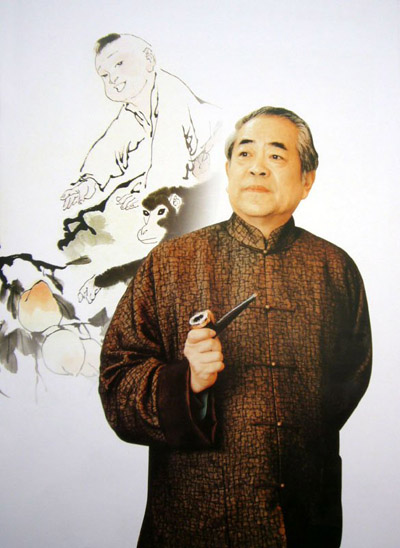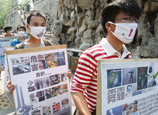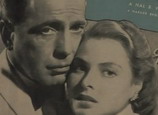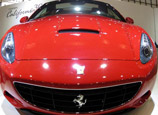
 |
| (File photo) |
Although his paintings fetch among the highest prices of living Chinese artists, Fan Zeng, the 75-year-old ink painter and calligrapher, says he doesn’t care about the price of his works or his ranking.
“I’m quite confident about myself and my art. I’m the No 1 Chinese painter,” he told dozens of embassy officers and foreign media reporters at a tea shop on May 8 in Beijing. “Critics are not qualified to criticize my works if they don’t read my books or attend my lectures.”
Fan spoke at the invitation of the All China Journalists Association, which organizes the bimonthly sessions that include scholars from various fields.?
Fan has several titles under his belt, including a professorship at Peking University, director of the university’s Chinese Painting Research Institute, and tenured professor at the Chinese National Academy of Arts. He has recently been acknowledged by the Hurun Art List 2013 as the third-best-selling living Chinese artist, after contemporary artists Zhou Chunya and Zeng Fanzhi.
The list creates controversy for relying mainly on sales at auction and being money-oriented. It says Fan fell from the top spot last year because of a drop by half in the value of his works, which still fetched nearly 429 million yuan ($70 million) in 2012. He does rank first among Chinese painters.?
Fan attempts to draw a clear line between his work and the market.
“I don’t pay any attention to how much my paintings cost, or how they are promoted. I have never attended any auction, actually. I really don’t mind whether I rank third or 13th.”
He says he paints about 250 paintings every year. He, however, finds that there are as many as 5 million works that are allegedly “made by Fan Zeng” on sale, which is definitely impossible for him to do.?
He says he is unwilling to attach a price tag to his works. “A painting is a commodity for trade to the market, and if it’s stolen and presented in court, it is called evidence. People see different values of a painting in various ways. But above all, it’s just a piece of art for an artist.”
“There are a lot of auctions selling works produced by hundreds of artists, but it has nothing to do with art. In the end, art is a practice that is limited to only a minority of people, and it’s a fact we need not argue about.”
In his speech, Fan moved further forward from his thoughts about traditional culture to concerns over the fate of humankind. He believes what people need to do now is “to redeem themselves from spiritual perversion”, or, to be more specific, promote “a ban on atomic bombs rather than the halfhearted anti-smoking campaign”.
He says he once asked Nobel Prize-winner Chen-Ning Yang whether science could make people happier, and Yang replied that maybe in the future, scientists could invent a type of opium that would provide all the pleasures that humans need without the side effects of real opium, and it should be much easier than making an atomic bomb.
“I told him what I referred to was the happiness coming from the heart, such as feelings of a child seeing his mother and people enjoying sunshine in a spring day. And Yang said, ‘Then that’s unlikely to happen.’ ”
“We have to change our life orientation from pursuing materials to fulfilling our mind, for instance, appreciating the achievements of civilizations and returning to nature. It is how we can solve all the problems,” Fan said.
















 S China city looks like Venice after heavy downpour
S China city looks like Venice after heavy downpour


![]()
